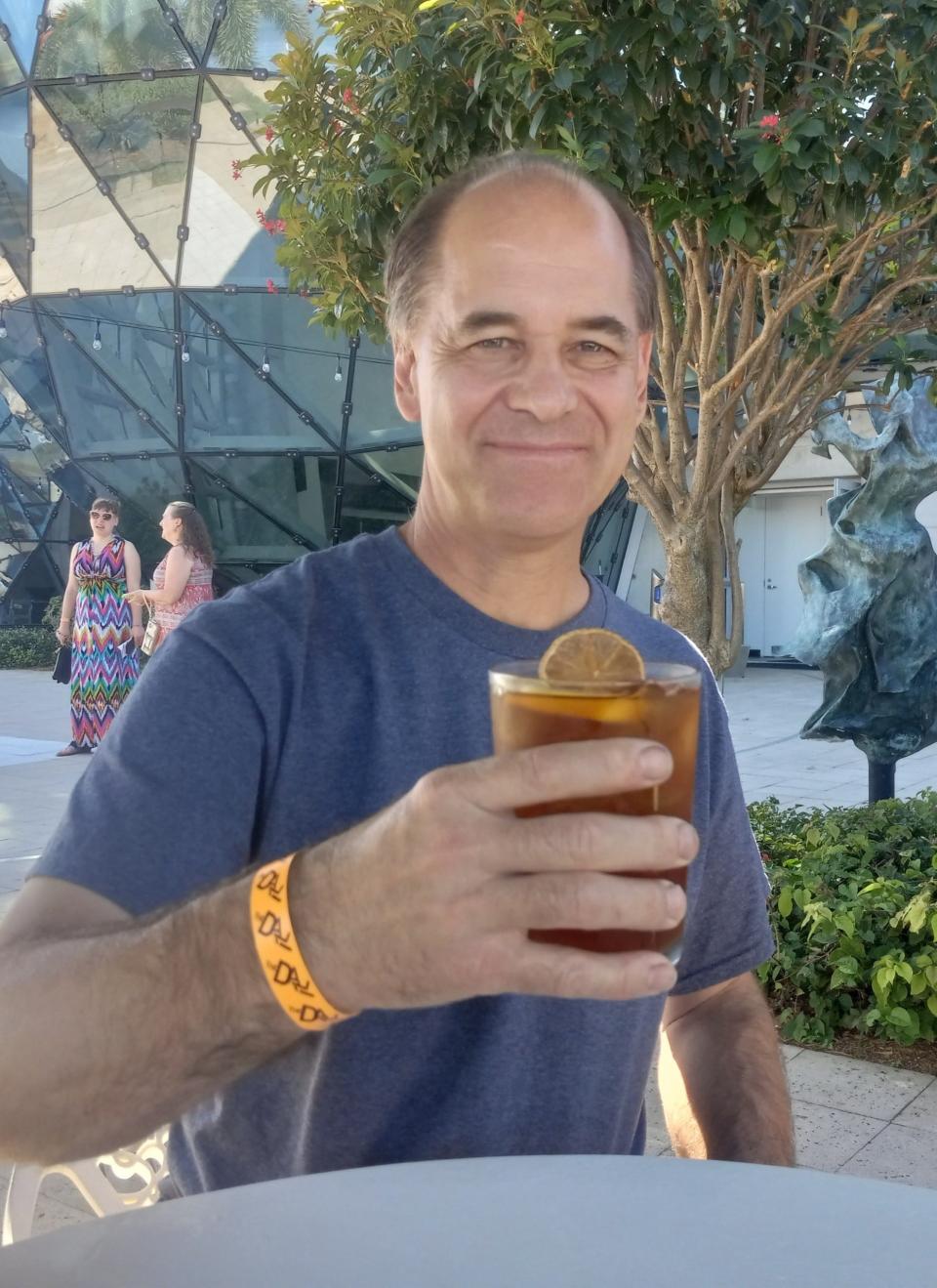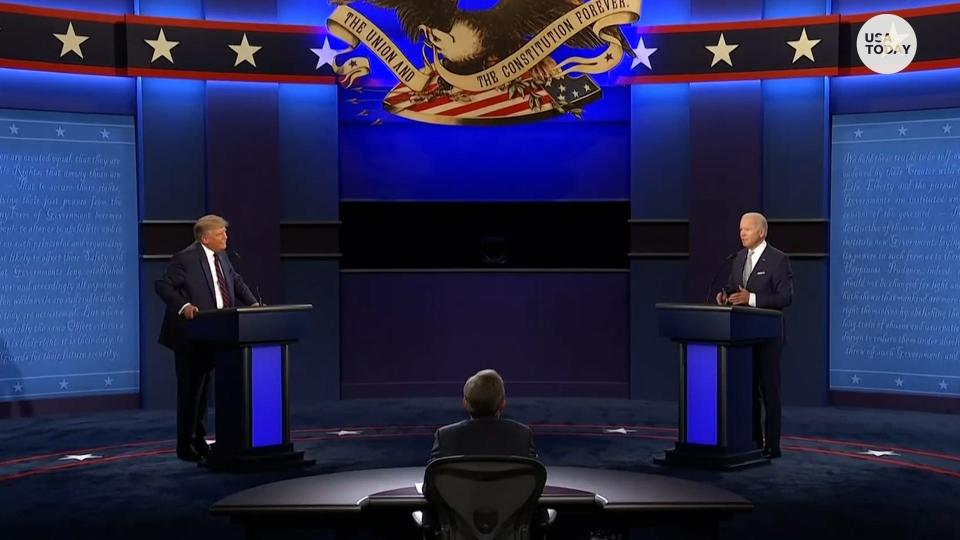This NJ tool and die maker worries for our democracy — and our working class | Kelly
Every now and then, a distinctive voice rises from the blah-blah-blah cacophony of American politics with a call for voters to take a fresh look at a forgotten corner of the nation.
This is the self-professed mission of Daniel Wasik, a tool and die maker from the borough of Fanwood in Union County, New Jersey. Wasik’s is not so much a partisan voice but one that is trying to draw attention to a theme that runs like a silent river beneath much of America’s political discord now.
His message: Blue-collar workers matter. Or as Wasik puts it: “I’m just trying to spread the idea that people who work with their hands are special.”
America loves to profess its admiration of ordinary working people — especially during election season. We’re told that factory workers are the heart and soul of what makes America great. Working families are the nation’s top priority. Sometimes the rah-rah chorus from both ends of the political spectrum seems as ubiquitous as Lee Greenwood’s “God Bless the USA” with its “proud to be an American” line.

Then comes the reality check and the hard facts that the working-class life is far too often a life of struggle.
'Our democracy could be torn up'

This is where someone like Dan Wasik enters the fray. He is not running for office. He is not a red-hat-wearing member of Donald Trump’s MAGA nation. Nor is he riding in the front seat with the Joe Biden crowd — though, if truth be told, he says he leans more to the Democrats' policy priorities these days.
Wasik, 59, who now works in a specialized factory near Rahway, New Jersey, that produces wire used in medical testing and procedures, recently wrote the equivalent of a blue-collar call to arms — what he calls “A Machinist’s Pledge to Vote.”
“I take a piece of rough steel and cut, mill, and grind it into a precise shape and form,” Wasik said in his pledge, sent to Republicans, Democrats and just about anyone else who would listen. “Through experience, craft, skill and perseverance, I make things that will be useful.”
Wasik goes on to add in his pledge that he worries “about what my generation is leaving for our children,” how “our democracy could be torn up right before our eyes” and “my kids are growing up into a country that’s falling apart.”
But what to do?
Wasik says he is frustrated. And that gut-level frustration is what he says much of America’s political leadership refuses to understand.
Memo to Republicans: These legal actions facing Donald Trump should scare you | Mike Kelly
As a tool and die guy, Wasik possesses a valuable skill that you can’t learn at Harvard.
“I just love the idea that what I’m doing can save people’s lives,” he says of his work at the firm that makes medical testing wire.
And yet, as Wasik looked around his working-class world, he found that far too many of his colleagues were consigned mostly to contract “gig” work. Benefits were scarce. Longevity in a job was negotiable — maybe. No one talked about pensions or employer contributions to 401(k) investment plans.
And then came the put-downs, subtle mostly but hurtful nonetheless. Wasik felt that far too many people saw his tool and die life as just one of those working-class jobs he fell into because he wasn’t skilled enough for the white-collar office career.
In other words, what Wasik did was not seen as all that important.
“I’m not just this guy doing this job until I can get a better one,” Wasik said in an interview. “The truth is, the world wouldn’t function without workers like me. But there is this lack of respect for people who are not college-type people. The people who keep the physical world going don’t get a lot of respect.”
Memo to Democrats: Here are five keys to win in your rematch with Donald Trump | Mike Kelly
'Working people saw little improvement in their lives'
This unsettledness in Wasik has been brewing for years. He points to the early 1980s and the failed trickle-down economics of President Ronald Reagan that never seemed to reach the working class.
The 1990s were not much better, Wasik says, with the globalist policies President Bill Clinton and Democrats embraced that eviscerated America’s system of factories and seemed to cater more to Wall Street investors.
By the 21st century, as Wasik sought to find a place as a skilled blue-collar worker, the pickings were slim. His mounting frustration burst into the public dialogue in 2019, when he wrote a letter to The New York Times titled, “A Lack of Respect for the Working Class in America Today.”
In general, The Times limits letters from readers to just 200 words. In Wasik’s case, it made an exception and printed more than 500 words — nearly the length of one of its opinion columns.
“For decades, as our nation increased its wealth, working people saw little improvement in their lives,” Wasik wrote. “They helped to make our country prosperous, but, increasingly, have been unable to pay their bills or afford health care. For decades, corporate leaders and their shareholders built their personal wealth by cutting worker benefits, eliminating pensions, dismantling unions and demanding ever higher levels of productivity and efficiency, while eliminating any sense of job security.”
Suddenly Wasik was popular. He was communicating with university presidents, with the White House and with the campaign of Joe Biden, who would go on to defeat President Donald Trump a year later.
But five years passed. Trump's promises seemed to stall. Biden moved into the White House and, again, little changed for the nation's working class, Wasik said.
He remembered his roots in northern Ohio, where he grew up. Like him, his father was a tool and die machinist. Others in the neighborhood also had skilled factory jobs.
But then the factories left for Mexico and China and India. Ohio’s working-class world was gutted.
“I can’t forget Ohio and where I grew up,” Wasik said. “Guys were working in a factory for 40 years and now they were working in Wendy’s. They supported their families. And the community around it. But basically overnight, it disappeared. It was hard to see that. I basically had to leave.”
Wasik moved to Colorado, then California. In Big Sur, California, he even ran into musician Neil Young and Donald Trump. But eventually, he returned to his working-class roots and embraced the tool and die life.
He doesn’t regret it. He just wishes the men and women who lead the nation would appreciate what he does.
Trump vs. Biden? No thanks: As 2024 election ramps up, many wish it were over
“Someone has to do the physical work,” Wasik said. “Somebody has to build and maintain everything. Those people’s lives have value.”
He is now hoping his “Pledge to Vote” will touch a nerve, with its promise “to vote for reason and facts, not chaos and lies,” for “empathy and forgiveness, not intolerance and violence,” for “equality and inclusion, not racism and bigotry,” for “our democratic institutions and the rule of law” — all in the hope we don't “allow the foundations of our nation to be made irrelevant.”
“I’m sending it to as many people as I can,” Wasik said.
He doesn’t see himself as a working-class hero or even the voice of the working stiff.
But Wasik is sure of this: “The world wouldn’t function without them.”
He just hopes America's political world is listening.
Mike Kelly is an award-winning columnist for NorthJersey.com, part of the USA TODAY Network, as well as the author of three critically acclaimed nonfiction books and a podcast and documentary film producer. To get unlimited access to his insightful thoughts on how we live life in the Northeast, please subscribe or activate your digital account today.
Email: kellym@northjersey.com
This article originally appeared on NorthJersey.com: Daniel Wasik, NJ tool and die maker, worries for US democracy

